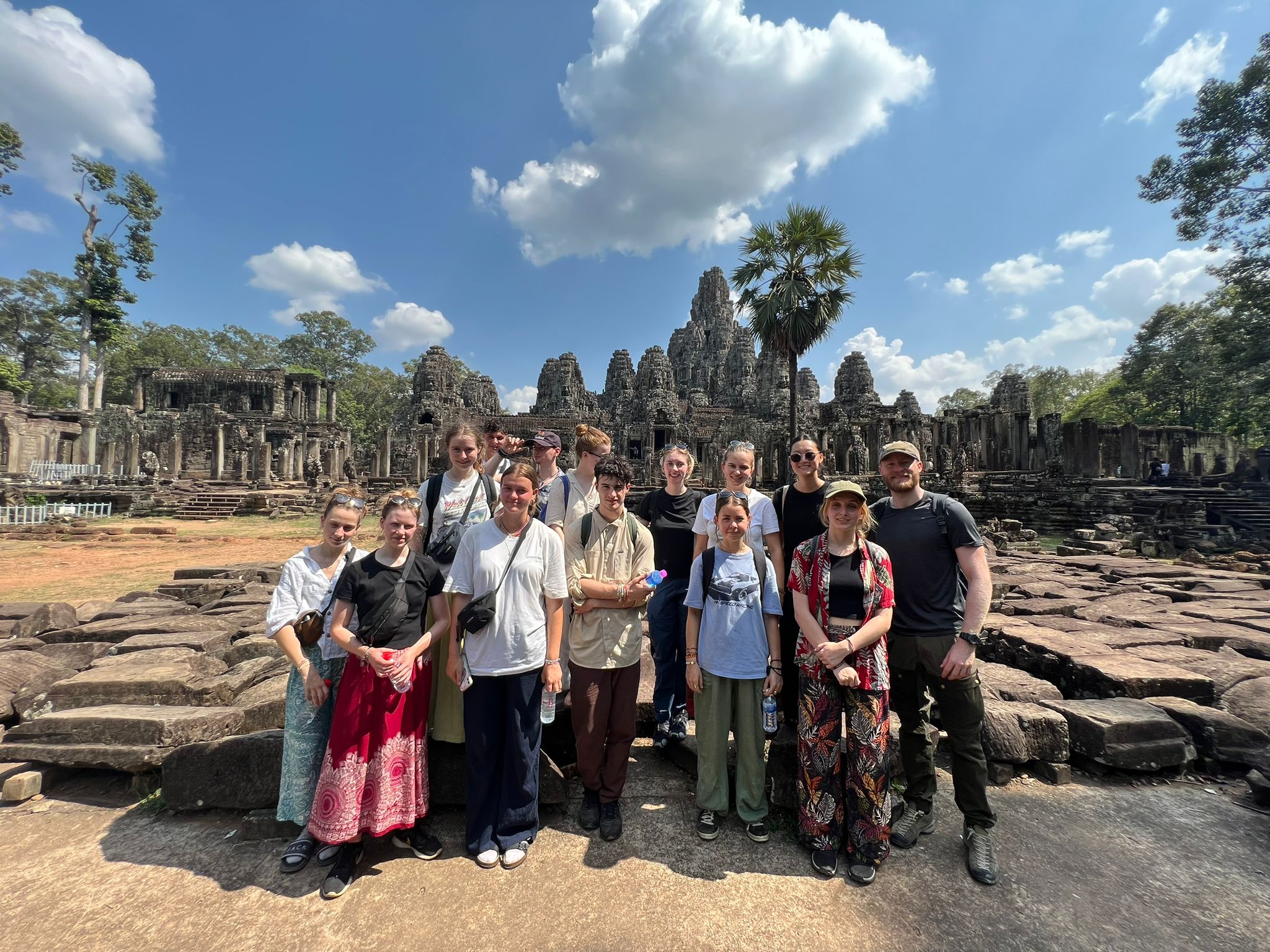6 Reasons Why Teachers Love Taking Students on School Trips
Our teachers love school trips. Let's find out why!
School trips are more than just a break from the classroom—they are powerful learning experiences that inspire curiosity, nurture independence, and bring subjects to life. Studies have shown that students who participate in educational travel demonstrate improved academic performance and increased cultural awareness. In fact, research by the Student & Youth Travel Association (SYTA) found that 74% of teachers observed a significant increase in student engagement after a trip. Teachers who take students on these journeys witness first-hand the incredible impact they can have. Whether it’s a shy student gaining confidence while navigating a foreign city or a hands-on activity sparking a lifelong passion for learning. Here’s why teachers love leading these unforgettable adventures...
1) Bringing Learning to Life
There’s nothing quite like seeing History, Science, or Geography come alive beyond the pages of a textbook. When students walk throughancient ruins, explore diverse ecosystems, or immerse themselves in new cultures, they absorb knowledge in a way that no classroom lesson can replicate.
Example: A History or Religious Studies teacher guiding students through the ancient kasbahs of Morocco or the temples of India helps them visualise the past in a way that reading about it never could. Similarly, when students explore the bustling streets of Vietnam or the distinct culture of Sri Lanka, they get to experience a world different from their own, gaining insights into Geography, World Religion, and cultural history. These immersive experiences create a deep understanding of what they’ve studied, far beyond what could be captured in a classroom discussion
2) Creating Deeper Student Engagement
Educational trips provide hands-on learning experiences thatcaptivate students by immersing them in real-world applications of theirstudies. Unlike traditional classroom learning, which often relies on memorisation,experiential learning helps students retain information more effectively byengaging multiple senses, fostering critical thinking, and encouragingproblem-solving in dynamic environments.
Example: Take, for instance, a group of Geography students inTanzania conducting field studies on the impact of climate change in localcommunities. Or, a group of students in Nepal learning about the Geography andgeology of the Himalayas as they trek through mountainous terrain as part of their Outdoor Education. In bothcases, students are actively involved in their learning, linking textbooktheories to real-world observations.
3) Developing Independence & Confidence
For many students, a school trip is their first experience traveling away from home. This fosters independence, problem-solving skills and resilience. Teachers love witnessing students step outside their comfort zones, take responsibility and grow in confidence.
Example: In Costa Rica, students may start their journey by navigating a dense jungle on a guided eco-tour feeding into their Biology studies, only to find themselves partaking in a community project later in the trip, using their Spanish Language skills to engage with locals. Or, in Sri Lanka, a student who had once been apprehensive about participating in an outdoor activity might discover a new sense of courage as part of a hiking group through the local landscape. These experiences help students build confidence in their decision-making abilities, empowering them for future challenges.
4) Strengthening Teacher-Student Relationships
Outside the traditional classroom setting, teachers and students build stronger, more meaningful relationships, which, in turn, develops a more supportive and engaged learning environment back at school. Travel breaks down barriers, creating opportunities for teachers to mentor, guide, andbetter understand their students.
Example: On a cultural exchange program in Vietnam, a teacher might spend time with students in a local village, participating in service-learning activities and engaging in meaningful discussions about cultural differences and similarities. Similarly, in Borneo, a teacher working alongside the students to assist on a wildlife protection programme may learn as much about their own strengths and teamwork as the students themselves. These shared experiences deepen bonds and enrich the educational experience for both students and teachers.
5) Encouraging Teamwork & Social Skills
Travel requires collaboration, from planning itineraries tonavigating new environments. Students learn teamwork, communication, andadaptability—skills that serve them well in school and beyond.
Example: In Tanzania, students might work together on a school renovation project, communicating to ensure they understand the roles and responsibilities of the group. Similarly, in Nepal, a group of students might work in teams during their trek to manage gear, solve challenges, and care for one another in a team-based environment. These experiences reinforce social skills and cooperation in ways that the classroom environment may not always offer.
6) Making Memories That Last a Lifetime
Educational trips create lasting memories that students cherish for years, not only developing a sense of adventure but also building confidence, resilience, and a deeper emotional connection to the world around them. Teachers love knowing that they’ve given their students an experience that shapes their world view, inspires future careers, and builds a lifelong love of learning.
Example: Years after a trip to the Galápagos Islands, a student might reach out to their teacher to share how their experience with marine life led to a career in marine Biology. Or, after an expedition to South Africa, a student who was introduced to environmental sustainability projects and game reserves might find that the trip was the catalyst for a lifelong passion for conservation. These moments, when students reflect on how the trip shaped their future, are one of the greatest rewards for teachers.
Final Thoughts
Teachers don’t take students on trips just for fun—they do it because they know that when students are engaged and enjoying themselves, learning becomes more meaningful, memorable, and impactful. Travel transforms education by blending excitement with discovery. From deepening academic understanding to promoting confidence and teamwork, these experiences shape students in ways that classroom learning alone cannot.
Ready to give your students an unforgettable learning experience?
Let’s start planning your next educational trip today!
Get in touch TODAY!

 Change region
Change region  United Kingdom
United Kingdom United States
United States